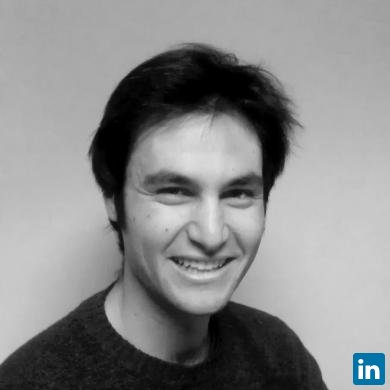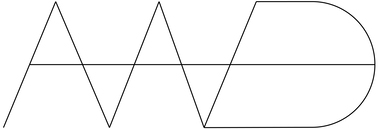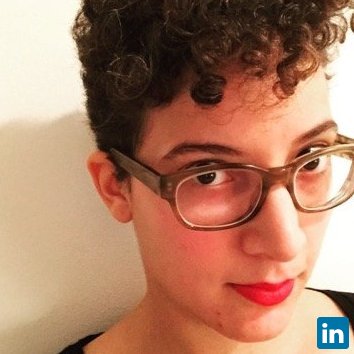About our project
The problem we solve: High risk groups cost medical institutions (payers and providers) the most because of habits embedded within social context. These "wicked problems" can only be solved from the inside, not through outside symptomatic treatment or outside "education."
About our solution:
The highest risk individuals know the most about their context and social network. By positioning these groups as the primary stakeholders of their own health and the health of those in their system, and integrating the patterns of their speech and group feedback with electronic health records geospatially, these groups can become change makers, lowering cost from the inside out.
Progress to
date:We have already tested the first high risk group in Brownsville Brooklyn, NYC, a group of gang affiliated young people reflecting on their territory. We are integrating this data with wearable technology and working with a major hospital, Brookdale, to begin to look at cost saving benefits.
About Our Team

Creator: Alan Waxman
Education: Harvard Graduate School of Design
Bio: Alan Waxman MLA applies ecosocial theory for health equity and cultural resiliency. By operating in locations of fragility in space and time, he aims to bring people together to reopen critical narratives. His current Urban Rhythms studios assess urban patterns by way of participatory engagement, setting up emic spectrums of data derived from meaning for cultural insiders. See New York Academy of Medicine: "Mapping Emotion To Improve Neighborhood Health." Resident participants, those who have the most to gain and the most to lose, collaborate to make real time interventions through events, dance, and environmental change. As "Neighborhood Doctor," Waxman deploys ecosocial design in Brownsville, Brooklyn NY and Kyoto, Japan, where he serves as an instructor with the University of Oregon in their Myoshinji Zen temple based urban design program. In 2015, he and Sang Cho produced New York City's first Health Impact Assessment with a group of elder residents in Brownsville. Working on projects primarily for NYC Parks, Waxman works for Quennell Rothschild and Partners, a leading landscape architecture firm for public space design. He is an inaugural Forefront Fellow with the Urban Design Forum in New York City.
Hospital Affiliation: Brookdale Hospital, Center for Court Innovation
Title: Urban Designer
Advanced Degree(s): MLA
About Our Company

How We Help Patients
This project is all about putting high risk patients in the driver's seat to manage their own lives just by being themselves. We value what patients say and do - in fact, this project is all about confidentially looking at what patients say and do and actually integrating that value with hospital IT to provide effective care and neighborhood change to lower cost and improve quality.
How We Help Physicians
Reducing re-admissions through our evidence-based health improving system, linked with Electronic Health Records, RTHM extracts necessary data for each personal health map, evaluating its own functional efficiency and continuously upgrading according to specific patient needs. Along with more efficient treatment compliance, we will help physicians to exercise their full agency to address each patient’s specific health context. Help me help you.
How We Help Hospitals
Reducing overall healthcare cost by strategic usage of the environmental health resources Linking personal health with community infrastructure allows hospitals to find treatment solutions in each patient’s socio-spatial environment, reducing re-admissions and lowering overall provider costs. Healthbased social capital created through the RTHM system is translated into significant financial benefits for both patients and hospitals. A healthy environment will save us all money.
How We Help Partners
Changing lifestyle through social networking RTHM positions and visualizes personal disease within a broader socio-spatial context, demonstrating that the patient is not the only one with the specific health problem. Through RTHM, each patient is able to externalize his or her own disease by transforming “my own problem” into “our problem to solve together.” Visualized and specialized on an aggregate level, health data creates a health-based social network that stimulates and sustains transformation of habits in the specific local setting. We are our health.
Challenge Mission
How We Address the Mission of The Challenge(s)
We have been conducting our Brooklyn based pilot working out systemic data generation techniques since 2014. We began the Mapping Emotion project with Brookdale Hospital in 2017. We are looking to help more hospitals. Let us help you decrease costs and improve care.
New Orleans and Our Company
The New Orleans community has many of the same statitics of high risk as Brownsville, Brooklyn, NYC, we expect to find ACO groups there that want to revolutionize healthcare IT and cut costs and improve quality.
Innovation Details
Intellectual Property Summary
Working with high risk individuals grants them intellectual property of their own data. The cryptography they create is their own property which is used in the group in a constantly updated real time ledger. We call this RTHM, or Real Time Health Mapping.
Clinical Information
We are currently working on testing.
Regulatory Status
We do not need FDA clearance to do this project.
How we will use the funds raised
We will further develop our data integration technology and improve algorithms that feature high risk patients.
Thank You
Healthcare institutions have the most to gain and most to lose by working with high risk patients. Yet, over and over again a stale 20th century strategy of "fixing" this "problem" group from the outside has failed. Rather, this "problem" group has become a core part of the business model of the healthcare industry. Its time to use AI and big data integration to look at this situation from the inside out - creating an environment that merges hospital data with the confidential data of high risk patients - such that these people can actually change their context the health of their entire health institional neighborhood from the inside out. We have already begun doing this in the toughest neighborhood in NYC. Help us to scale.






